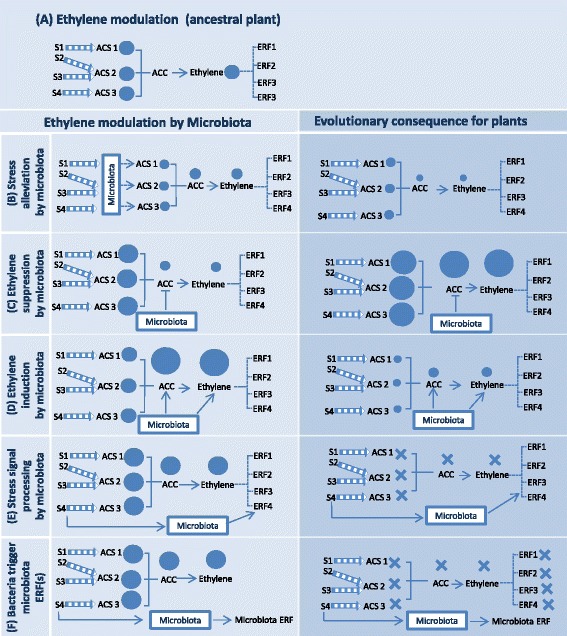Fig. 3.

a Potential consequences of evolution of an intertwined ethylene signaling involving both plant and microbiota. In ancestral plant phenotype, ACC (1-aminocyclopropane-1-carboxylic acid) is produced by the action of ACC synthase enzymes (ACS). ACC is then converted to ethylene by the enzyme ACC oxidase, triggering different ethylene response factors (ERFs). b Bacteria reduce the intensity of stress experienced by the plant. Plant reliance on the microbiome to reduce stressors may lead to a reduced ability of the plant to respond to the acute stressors. c, d Bacteria alter ACC and ethylene in plants, leading to over- or under-expression of ethylene pathway genes in plants. e, f Microorganisms integrate plant signals and trigger plant ethylene response factors (ERFs) or express their own ERFs, contributing to partial or complete loss of ethylene pathway in the plant. The dashed lines (for instance, between stressors and ACS and ethylene and ERFs) showed indirect connections. The size of each circle indicates relative levels of ACC synthase (ACS) activity, ACC, and ethylene production in response to stressors (S1–S4)
